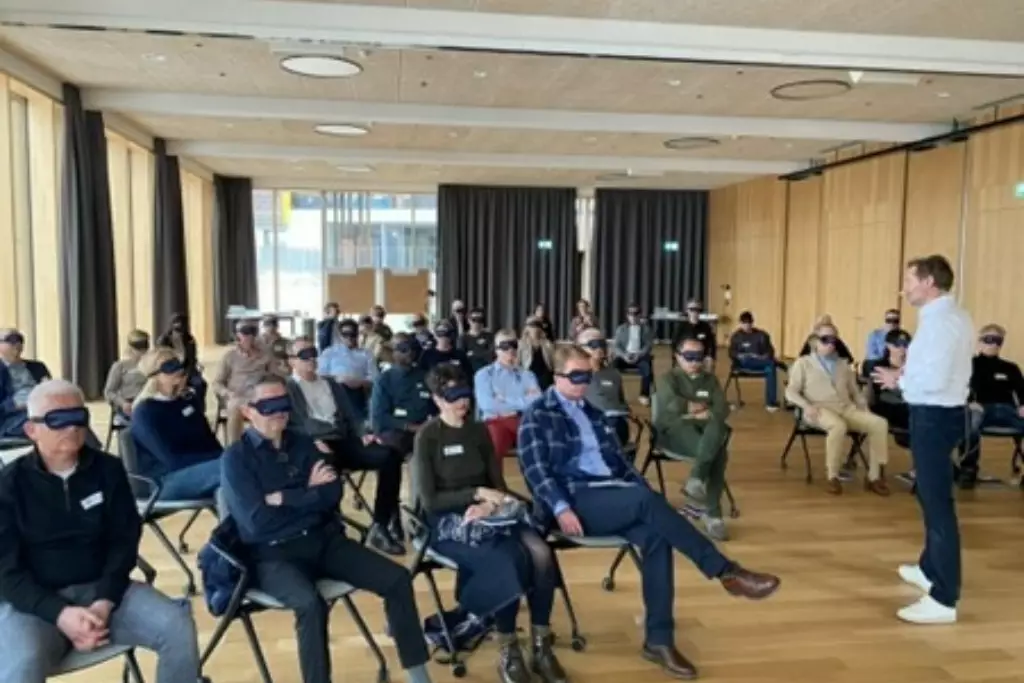Get in touch
What can we learn from Parzival?

- Duration
- 10 min read
- Author
- By Ekki
Parzival is an epic poem composed in the 13th century by Wolfram von Eschenbach in 16 books and a total of 24'000 lines. Is there anything that this master piece about the hero’s journey of a knight can still teach us today?
With a Mountain Wisdom group of 15 business leaders we travelled to Terra Parzival, a region in Slovenia where several supposedly original places of the saga can be found. Guided by two artists with deep knowledge of the region and the epos, we explored a couple of concepts and found both truth and relevance.
Here are some insights that I felt worth sharing.
The very first verse
"Wenn Zweifel ist Nachbar des Herzens, dann wird die Seele sauer"
"When indecision is in the heart, the soul is bound to grieve and smart"
This is only the first of 24'000 verses, but it pulls you right away into deeper grounds. Which leads me to the first question for you to reflect:
- How is your interplay between doubts, heart and soul? And what are the implications for you and the people around you?
Your horse and how you ride it
On his journey Parzival engages in a fight with another knight; he kills the other knight but looses his horse. As he continues the journey with the other knight’s horse, he lets the reins loose and is surprised that the horse is taking him directly to the castle of the holy grail.
The question that this triggers for you as business leaders:
- Are you sitting on the right horse? Will your horse take you where you need to go?
- How are you riding your horse? Are you holding the reins too tight? How does this limit your horses abilities and potential?
The question to the grail king
Without knowing, Parzival reaches the grail castle and meets a wounded monarch, the Fisher King, who keeps guard over the holy grail. His injury keeps him from tending to his kingdom, and over time it grows into wasteland. The Fisher King is welcoming Parzival and offers food and bed. Parzival can only heal the king if he asks the correct question; but he is afraid and doesn’t ask any. Next morning when he wakes up, all living beings have left the castle and he had missed his chance. The question that this might trigger for you as business leaders:
- What are the questions that you didn’t dare asking?
- What were moments in your life when you didn’t take the chance?
There are different versions of what the grail question should have been, that would have healed the king and allowed access to the holy grail. Here is a very simple, yet powerful one: what do you need?
12 virtues of the knights
Aspiring knights were not only trained in fighting and weaponry but also on inner values, more specifically on a set of 12 virtues. Here they are:
12 virtues
- Reinheit - Purity
- Keuschheit - Chastity
- Herzenskraft - While it sounds so great it is actually not easy to grasp and translate; it is about the power of the heart
- Sanftmut - Gentleness
- Grossmut - Magnanimity
- Güte - Kindness
- Würde - Dignity
- Treue - Fidelity
- Stetigkeit - Steadiness
- Anstand - Decency
- Masshalten - Moderation
- Verlässlichkeit - Reliability
The first insight as we explored these virtues is that with the exception of one (guess which one!) all the others were identified by at least one of our group members as a virtue that they cherish and honour and would consider a strong trait of how they live their lives. Another discussion point was that - at least in German - the virtues sound old-fashioned and several have almost disappeared from daily use. And yet, we all agreed that they deserve to be brought back to our lives, both in business and in society.
While we would not dare to look at business leaders as knights we felt that there is a need for a code of conduct - potentially inspired by such a set of virtues - on how we want to show up and run our companies.
- Which virtues speak to you personally?
- Which one would you like to see more present in your teams, your community, society?
- What could you do about it?
The holy grail
At the closing of our Mountain Wisdom experience in Terra Parzival, we asked participants on how they would define the holy grail. There is no right or wrong, and here are some hints of what people offered:
- With joy and ease bring courageous kindness to myself, my loved ones, all people and the planet earth
- Give love and wisdom to the world (and ask what they need)
- Feel and connect from the inside
- Bring a gift into the world
- Inner peace and a fulfilled life
- Mein Ich, i.e. the authentic and real expression of the I
- To be in harmony and peace with myself
- Find your unique talent and bring it as a gift to the world
And with this, the questions go to you:
- What is your definition of the holy grail?
- Have you found it?
- What do you need to find it?
All of us did find the detour into medieval wisdom and romance deeply touching and connecting. Beautiful conversations emerged around those time less concepts and an inspiring group of modern knights travelled home.
These might be small drops in the universe but, eventually, they will make a river and a movement.
Cheers,
Ekki
Latest Field Notes
More field notes that may interest you.

Go home - going home

Your Leadership Space – Obstacle or Enabler?
